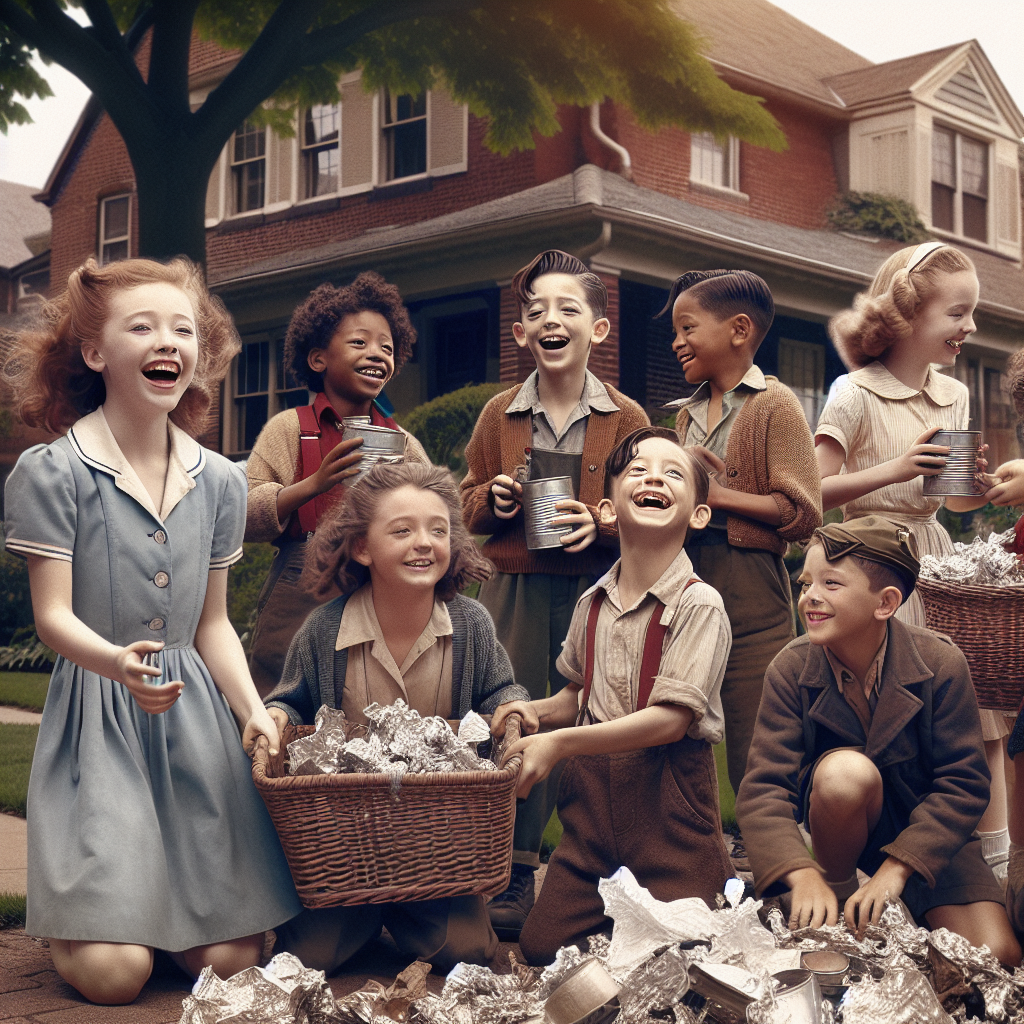Wartime Patriotism: A Retrospective on Community and Sacrifice
World War II remains a defining epoch in history, not only for its intense battles and geopolitical impacts but for the way it unified citizens on the home front. The war demanded immense sacrifices and unflagging patriotism, transforming daily life across nations. This collective effort, captured vividly in the reflections on gathering tin foil and bacon grease, speaks volumes about the era's spirit.
The Fever of Patriotism: A Child's Perspective
Reflecting on the past, one might struggle to find a time more steeped in patriotic fervor than the days of World War II. An era marked by the relentless drive to support the war effort, even children contributed in significant ways. The excerpt, "We children gathered together pieces of tin foil from the lining of cigarette packages... watered it up into balls and took them to school so they could use it to make bombers," is a poignant reminder of the unity and purpose felt across all age groups. This grassroots involvement mirrored the broader national psyche—each citizen, regardless of age, felt an intrinsic duty to contribute to the war effort.
This collective action went beyond mere symbolic gestures; it had tangible impacts. The aluminium harvested from cigarette packages and the bacon grease saved from household cooking were crucial resources. Tin foil, repurposed into bombers, and bacon grease, used in the production of bullets, highlighted the direct linkage between civilian actions and military needs. Such activities fortified a sense of purpose and connection to the broader war efforts, enhancing community spirit and national unity.
The Resourcefulness of a Nation at War
Resourcefulness became a hallmark of wartime society. With many materials redirected towards the war effort, citizens had to adapt to shortages of everyday goods. The recollection of these efforts underscores the ingenuity and resilience of the population. “We collected newspapers for the same reason,” further illustrates the extent to which every scrap of material was considered valuable.
The mobilization of resources wasn't just about material aid but also about reinforcing the morale of both the troops abroad and those on the home front. Knowing that their efforts contributed to the wartime machinery provided a sense of contribution and pride. It also provided a shared experience that brought communities together in unexpected ways.
Sacrifice and Adaptation: Living on Macaroni and Cheese
In wartime, sacrifices weren't limited to commodities; they extended deeply into the lifestyles and diets of the populace. The mention of living on macaroni and cheese paints a vivid picture of the personal sacrifices endured by families. This frugality and adaptation were necessary as many staple foods were rationed to support troops.
While some individuals resorted to the black market to supplement their diets with rare treats like steaks, most adhered to the stringent restrictions with a sense of duty and shared hardship. These shared sacrifices created a unique bond among citizens, deepening their resolve to support the war effort in every possible way.
For additional background on how the war efforts reshaped economies and daily lives, consider reading more about wartime economy adaptations on historical websites such as The National WWII Museum.
The Role of Patriotism in Achieving Victory
A significant theme in wartime narratives is the omnipresent hope and determination to see victory. Before 1943, the outcome of World War II was far from certain, and this uncertainty galvanized a nation's resolve. The collective psyche, as reflected in the statement, "We were all all consumed with winning this thing,” showcases the unwavering commitment to the cause.
Despite hardships, the patriotism that permeated every aspect of life propelled the war effort forward. This shared nationalistic zeal can be credited with sustaining morale and ensuring that every individual, from children to adults, played a part in the eventual victory. The unity and shared purpose were instrumental in overcoming the monumental challenges posed during those years.
Reflections on Community and Sacrifice
Looking back on the patriotic efforts of World War II, it's clear that the war did more than impact the battlefield; it reshaped communities and the very notion of citizenship. The synergy between the home front activities and military campaigns created an environment where everyone contributed to the common goal.
The recollection of children gathering tin foil and bacon grease may seem quaint today but represents a profound moment in history where every effort counted. This unified front—despite the presence of a black market and existing inequalities—underscores the powerful drive towards a collective victory.
For further insights into the impact of World War II on everyday life, consider exploring additional resources such as the History Channel's documentation on WWII.
In conclusion, the era of World War II stands as a testament to the power of collective action fueled by patriotism. The sacrifices made, the resourcefulness exhibited, and the unyielding commitment to the cause are hallmarks of a time when every individual’s effort, no matter how small, played a crucial part in shaping history. The legacy of this period offers enduring lessons on unity, resilience, and the profound impact of national solidarity in times of crisis.
Related News
- The Spirit of Patriotism: A Journey Back to World War II
- The Complex Tapestry of War: Beyond Generals and Tactics
- The Paradox of Resilience: Unpacking the Soviet Union's Unyielding Spirit in WWII
- Analyzing the Complexity of World War II Alliances and Anti-Communism
- The Legacy of World War I: Shaping the Strategic Minds of World War II
